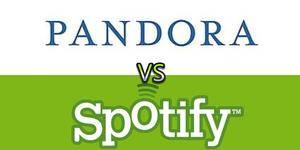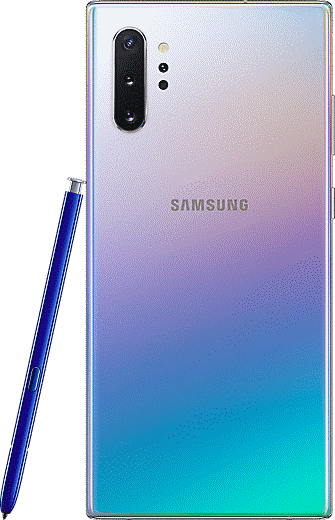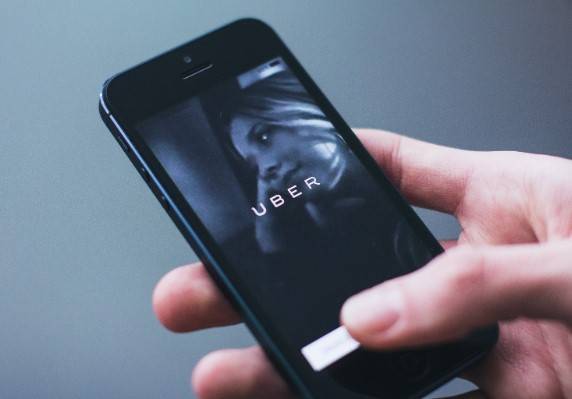Apple released its own music streaming service in mid-summer of 2015. Apple Music joined the ranks of entrenched competitors such as Pandora, Spotify, and Google Play Music. All of these services offer similar features, so how can you decide which music streaming service is right for you? The Nerds at Nerds on Call have put together a bit of a comparison to help clear the air when it comes to picking a streaming service.
Music streaming services such as Pandora and Rhapsody play songs like a radio station, building a selection of tracks similar to a genre, artist, or specific song that you enjoy. The only drawbacks of these streaming services are commercials and limited amounts of skips per hour, but for free music streaming they are strong players in the market. Programs such as Spotify, Google Play All Access, and Apple Music offer a radio function similar to that of Pandora, along with specifically searchable songs and artists. They also offer the ability to create playlists with specific tracks in specific order, meaning you can hear exactly what you want rather than songs suggested by an automated program. The music streaming services with more customization options run about $10 each month, but also do not force you to listen to advertisements or limit your number of skips per hour.

For those that have a large digital music library already, Google Play All Access, Apple Music, and Spotify allow for uploading your own tracks, meaning you can create mixes with tracks from your own collection along with any song or artist you could think of from a selection of over 30 million tracks. Perhaps the only downside of these online music streaming services is that not every artist is represented. If you have a peculiar taste in music, be sure to try the services before you buy. All of the major music streaming services offer free trials, or free versions with integrated ads. Also, think about where you will use this service, if it is only going to be used on your desktop at home, a free service will likely do the trick. If you plan on streaming music on the go, or connecting to home theater equipment, be sure to confirm compatibility with each device and program. Currently, Spotify offers the most diverse number of platforms.
Another thing to consider when searching for an online music streaming service is how many people will be using the service under one account? Apple Music offers a plan for up to 6 people for $14.99 each month, while Spotify costs $10 each month for a primary user, and $5 for each user added to that account. So how can you decide which one is best for you? If you have an iPhone and want to stream primarily on your mobile device, Apple Music is the way to go. Spotify is great for users that want to create their own specific playlists and listen to them across a multitude of devices. Pandora is ideal for those who are looking for a variety of music to just play in the background based on a song or artist they like without worrying about setting up any playlists. Google Play Music is best for Android phone users, particularly those who already have a music library uploaded to Google Play.

About The Author: Andrea Eldridge is CEO and co-founder of Nerds On Call, a computer repair company that specializes in on-site and online service for homes and businesses. Andrea is the writer of a weekly column, Nerd Chick Adventures in The Record Searchlight. She prepares TV segments for and appears regularly on CBS, CW and FOX on shows such as Good Day Sacramento, More Good Day Portland, and CBS 13 News, offering viewers technology and lifestyle tips. See Andrea in action at callnerds.com/andrea/.
Video Transcript
Dina: All right. Yesterday, Apple rolled out their new music streaming service. It’s called Apple Music, and joining the ranks of the entrenched competitors like Spotify, Pandora, Google Play Music which all offer on-demand music for your computer or mobile device. So which is best? That’s why we brought in Ryan Eldridge, the co-founder of Nerds On Call. Too many things for me to decide between, first of all, Ryan. But out of all of these, describe for us, why certain ones are better than others.
Ryan: Here’s the thing, they’re all roughly the same.
Dina: Right.
Ryan: Apple Music and Spotify and everything are the same. But there’s two main categories. One category is the free stuff. So you can build your own custom radio stations, like Pandora, you can select an artist or a genre of music you like, and it will create a custom station for you. And Spotify has that. Radio has that. So does Google Music and all these others. And those are free. That’s kind of cool.
Dina: That’s the best part about them, is that they’re free, I would say.
Ryan: But if you’re really more into customizing your music, you want to listen to specific artists, you want to listen to their catalogs, and you want to really make your own playlists and even share them, that’s what you’re going to be paying for.
Dina: Okay. So, real quickly, on Pandora, you can section off the types of music and the types of genres you like, so this is even more customized than that.
Ryan: This is even more customized. Let’s say for an example that you are a really big Michael Buble fan. And you want to listen to his entire catalog. You can’t do that on Pandora. You can only listen to what they play for you.
Dina: Music like Michael Buble?
Ryan: Yeah.
Dina: Okay.
Ryan: Whereas on Spotify, you can say, I’m want to hear his entire catalog and just play it on repeat, and I want to reorder the songs in a way I want to listen to them. You can do that. And on most of those services. And they’re all roughly about ten dollars a month. There’s about thirty million songs. They all have access to about the same songs. And you can play your music offline as well as online, so that way if you’re going to get on a plane, trip, or be somewhere where there’s no internet connection, you can listen to your music offline. You have access to high quality sound, so it’s not like you’re going to be listening to the old or scratchy mp3s that we’re all used to from the early ’90s.
Dina: Okay, real quickly with this. Are you buying the rights to the music? Do you get to store these items on your mobile devices and tablets?
Ryan: For as long as you’re paying for it, yes.
Dina: Okay.
Ryan: I think Google Play and also Spotify as well as Apple Music; they give you what’s called a digital locker. So you can put all of your own music on it as well as any music that you’re downloading directly from these services. As long as you’re paying your thing and you connect every now and then, you can have access to all that music offline any time you want.
Dina: Okay.
Ryan: While we’re talking about that locker, each one of the services allows you to upload your own music, Google Play and Spotify, which takes quite awhile to upload all your own music. Apple has a unique service where it allows you to match your library. It will scan your library and then just give you access to all your songs that they already have in their music collection, which is kind of nice.
Dina: That is nice.
Ryan: So you don’t have to do a lot of uploading. But they’ll upload the things that are rare, or things that they don’t currently have in their collection.
Dina: Okay, so who benefits from which type of service here?
Ryan: Okay, so if you’re somebody who… Apple Music, let’s start with them. They have one of the greatest things. For ninety days, they’ll give you a trial for free, which is kind of nice, so you can check it out, see what the interface is like, see what the GUI is like, whether or not it’s good and simple for you, whether it’s got too much stuff in it or whether it’s too confusing. If it is, move on to the next one.
Dina: Okay.
Ryan: But the best part about Apple Music is that it is $14.99, for up to six users or ten dollars for one user. That’s unheard of. Spotify is ten dollars for the first user, five dollars for each additional user. Google Music, for example, it’s ten dollars and you can’t share it.
Dina: So is there a concern here though, where if big brother who is sixteen has music that little brother who is twelve can access?
Ryan: Yes. On Spotify, for example, one of the nice things, they separate the accounts. So mom can have her account with her music on it. The son who likes more rock and roll music, he can have his, and even the younger kids who are more Disney collections and you’ve got them segmented off, can have their own. And none of them switch over. That’s one of the best parts about Spotify. It’s not clear yet whether or not Apple Music will allow you to segment each user’s own account, or whether it’s going to be one big shared account.
Dina: Okay, got it. A lot to sift through there.
Ryan: Yes. Yes.
Dina: And real quickly, before we go, our app of the day today was Runkeeper. This is something that you’ve all been very excited about.
Ryan: Oh, I love Runkeeper. I use it almost every day. I run about six miles a day through…
Dina: Good for you!
Ryan: … right next to the river trail.
Dina: Show off!
Ryan: It’s great, because when you start out, you click, I’m ready to run, and it will just track your run and your GPS coordinates and everything. And it will track your calories burned, how many steps you took. You can kind of compete against yourself as well as other users. It has workout plans. So you can say, “I want to do a fast high intensity workout today” and it’ll track how well you’re doing. It can track your weight, your diet, steps throughout the day.
Dina: Wow.
Ryan: One of the coolest parts is it integrates with streaming music services like Spotify. And so Spotify has a cool running app, where it will check out your pace and set your music to that pace.
Dina: That’s great.
Ryan: You’re only listening to say 170 beats a second, sorry, 170 beats a minute. So you can integrate that with Runkeeper and keep track of your music while you’re running so you don’t have to keep pausing and switching apps the whole time.
Dina: And is this something that’s free unless you want to upgrade it?
Ryan: It is free. It’s really great. But if you upgrade it, you get access to personal workouts and personal training workouts and things like that. The free version allows you to just log your runs and it works wonderfully.
Dina: All right, well I know a lot of people who would love that app. I personally use Strava, and I like it a lot.
Ryan: I’ll try it out.
Dina: To each their own. There we go. Yes. Ryan Eldridge, thank you so much.
Ryan: You’re welcome.
Dina: I appreciate you being here





